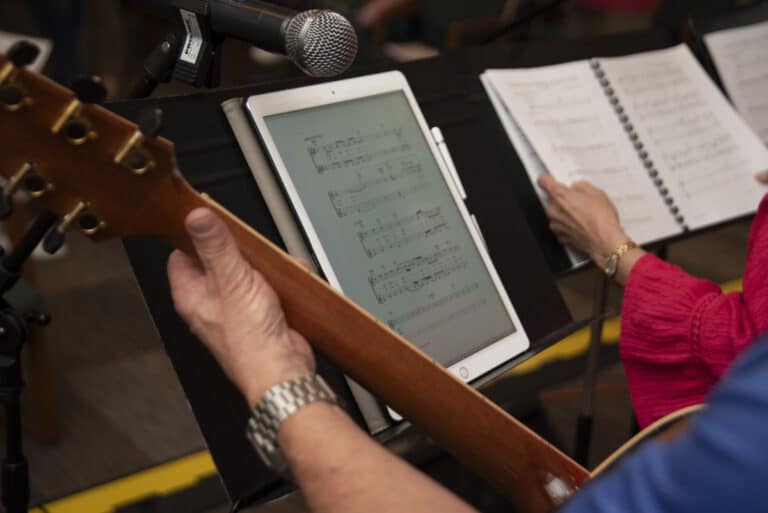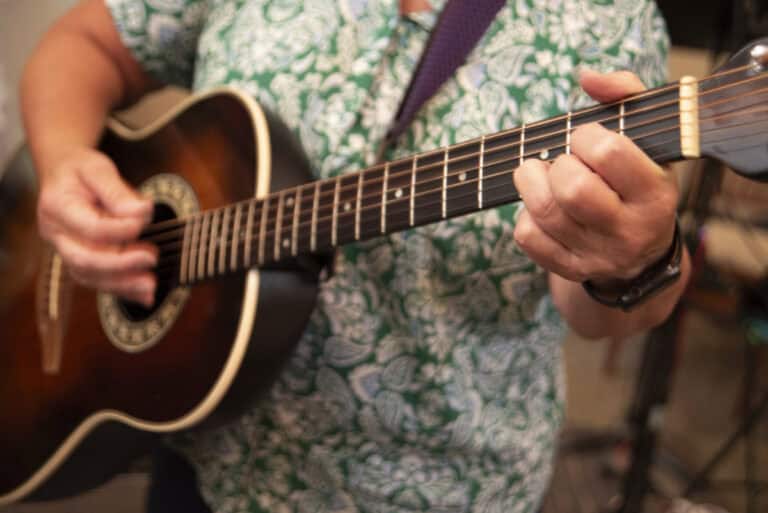Thousands of volunteer musicians and singers gather every weekend in Catholic church ensembles across the United States to lead the gathered faithful in sung prayer. These ensemble members freely share their gifts and talents, offering time weekly at rehearsals and liturgies. Furthermore, many members also commit time rehearsing at home in preparation for liturgy. With the investment of time shared by ensemble musicians and singers, how demanding can ensemble directors be? Should directors hold high musical expectations for members who freely volunteer their time and talent?
The answer, plain and simple, is absolutely.
First and foremost, it’s very important that all members of ensembles understand that God deserves the very best we have to offer. In addition, as alluded to in Article 5 of Sing to the Lord: Music In Divine Worship, the gathered faithful rightfully deserve our greatest efforts. Just what constitutes our “very best?”
- For instrumentalists, it means we have rehearsed and know the music well enough so we can move our eyes off the music to watch and follow the director. Ensemble instrumentalists do not play their instrument isolated on an island, but along with other musicians. Players must learn how to play off each other to provide the right mix of instrumental sounds that maximize the assembly’s singing. This can only happen when we can get off the score and follow the director.
- Following the director is also important for ensemble singers. Burying our faces in the music without an awareness of the leader’s direction will diminish the quality of music produced. Ensemble singers should not be a collection of individual singers, but instead a group that becomes one voice that produces a unified sound. This demands the use of good choral techniques.
- Finally, for directors, it means that we have a well-developed musical conception for each song that can be well-communicated while leading. Directors have the greatest responsibility of all – their attention must span the entire ensemble to ensure the music is most effective. They are the engine that makes the rest of the group function well.
While participating in an ensemble can be extremely rewarding, fine music-making requires a great deal of work and effort. But here’s the thing – even with all the work required by ensemble members, most people want their music to be the best it can be and are willing to work hard. Everyone desires affiliation with something great, and ensemble music-making can offer this opportunity.
So, ensemble music directors, don’t settle for musical mediocrity. Ask your members for a strong effort and set the musical expectations high. Remind them that God deserves their very best, as does the gathered community. Give your ensemble ministry a taste of greater musical success and they will surely hop on board.
Written by Steve Petrunak. Copyright (C) 2022, Catholic Liturgical Ensemble Formation.



